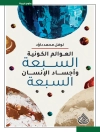In ‘Arthur Conan Doyle: Esoteric Writings, ‘ readers delve into the lesser-known but profoundly intriguing spectrum of Doyle’s oeuvre that transcends his famed Sherlock Holmes series. This compendium assembles a variety of essays, short stories, and philosophical musings that engage with themes of mysticism, spirituality, and the arcane. With a unique literary style marked by lucidity and a penetrating insight into the human psyche, Doyle’s works reflect the intellectual fervor of the late Victorian and early Edwardian periods, a time marked by burgeoning interests in the occult and alternative spiritualities. Arthur Conan Doyle, trained as a physician, was drawn into the realms of the supernatural and the esoteric, influenced by personal tragedies and his quest for understanding life after death. Beyond his detective fiction, he was a passionate advocate for spiritualism, fervently believing in the existence of a spiritual realm. His life experiences and scientific background laid the groundwork for a profound engagement with esoteric concepts, which he skillfully wove into this compelling collection. ‘Arthur Conan Doyle: Esoteric Writings’ is an essential read for scholars of literature and esotericism alike. It invites readers to explore the dimensions of Doyle’s thought and the wider historical context of his beliefs, enriching their understanding of one of literature’s most complex figures. Engage with this collection to discover the intersections between reason and mysticism, and the enduring questions that continue to intrigue us today.
About the author
Sir Arthur Conan Doyle (1859-1930) was a British writer best known for his creation of the iconic detective Sherlock Holmes. Born in Edinburgh, Scotland, Doyle initially pursued a medical career, graduating from the University of Edinburgh Medical School. Writing, however, was his true passion, and he authored numerous novels, short stories, poems, and essays. Sherlock Holmes, Doyle’s most famous character, first appeared in ‘A Study in Scarlet’ in 1887, capturing the imagination of readers with his unparalleled deductive reasoning and astute observation skills. Doyle’s writing extended beyond detective fiction, as he ventured into historical novels, science fiction, plays, romance, and non-fiction. His interest in spiritualism and the occult was profound, particularly later in his life, leading to several works on the topic, including ‘The History of Spiritualism’ and ‘Pheneas Speaks’. ‘Arthur Conan Doyle: Esoteric Writings’ offers insights into Doyle’s lesser-known spiritual and mystical explorations, diverging from his rational Sherlockian narratives. Doyle’s literary style is characterized by its lucidity, measured pacing, and intricate plotting. While best remembered for his contributions to the mystery genre, his broader canon displays remarkable versatility, reflecting a life dedicated to the pursuit and communication of knowledge across diverse fields.












